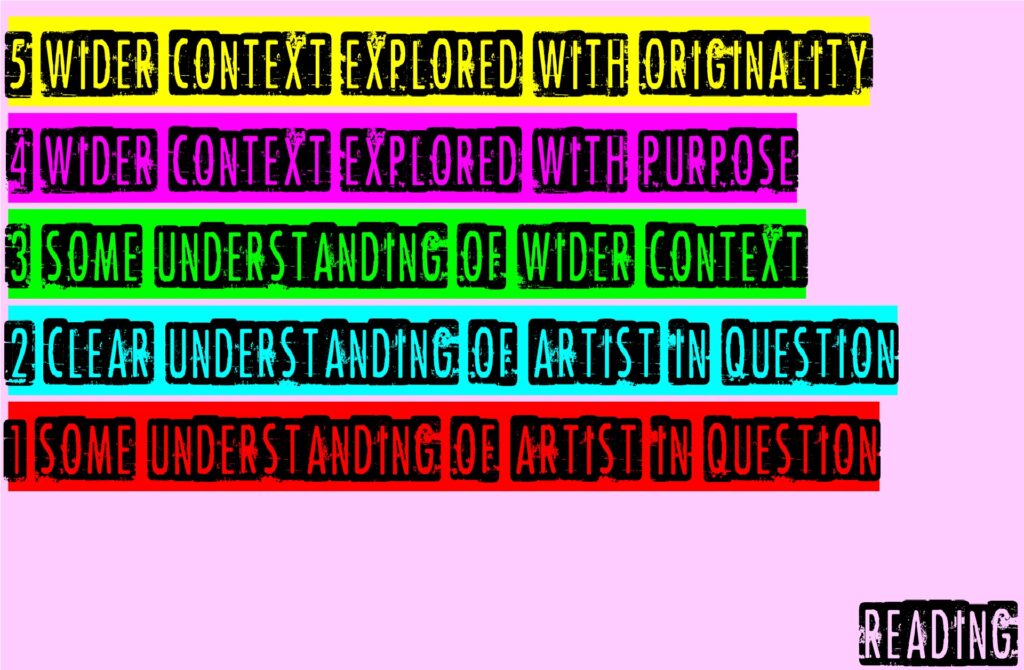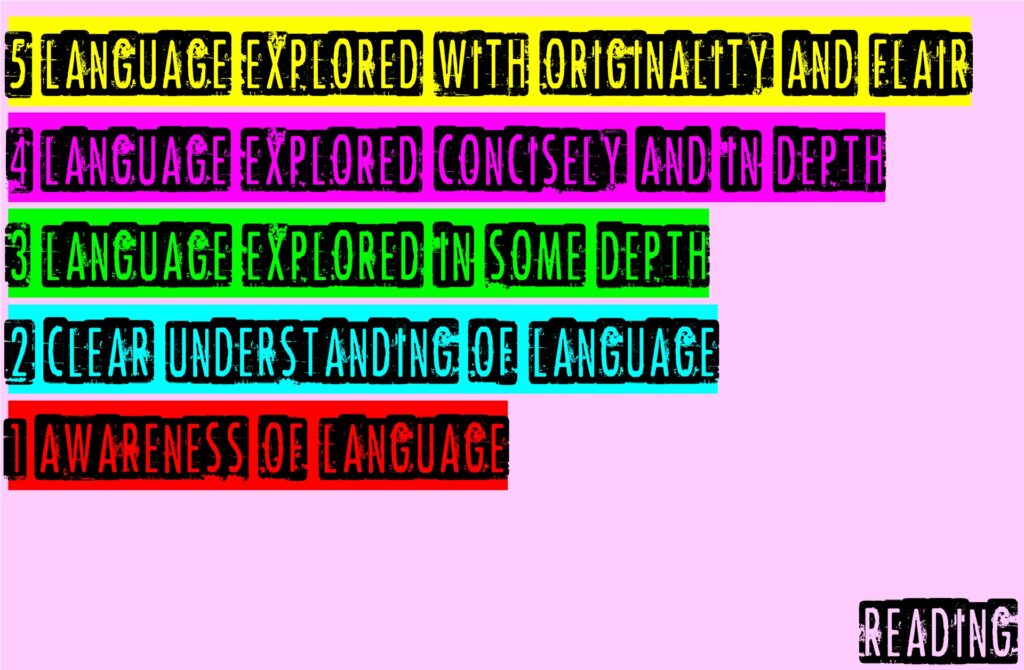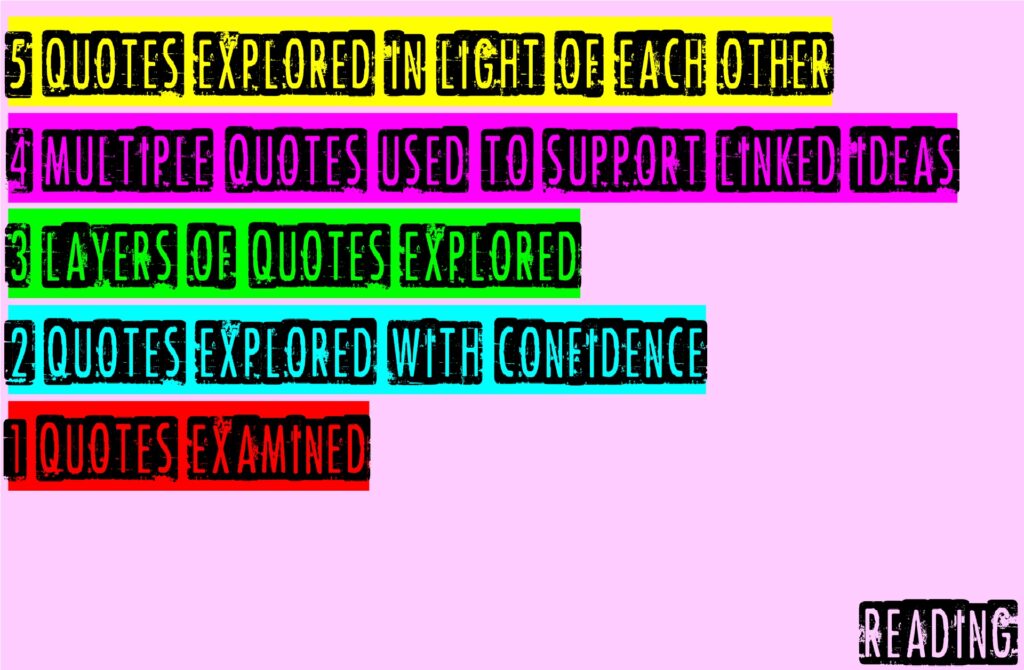CLASS FOCUS:
- Understanding how context impacts on the significance of key vocabulary
- Identifying key themes/messages within course texts
- Collecting quotes that evidence the key vocab/themes in an easily revisable way
If we had to listen to one band for the rest of our lives, we’d pick Against The Current!
Put the trio’s latest record – ‘fever‘ – on your headphones and you’ll feel like angels are living in your ears.
Handily, you’ll also find yourself turning into a more sophisticated student of English Literature.
How does that work?! Well, let’s see…
Firstly, you already know how important it is that you understand the context in which your course writers were scribbling away.
It’s this understanding that will offer your analysis a sense of real depth.
No, you’re not history students, but – as English students – we are interested in what’s happened in the past and why people felt the way they did.
So, where can you locate the opportunities for demonstrating your own contextual understanding?
Why don’t you start by identifying at a few key words within each of your course texts – words that might mean something to everyone, but words that are actually full of more significant meaning that might remain invisible to a person who isn’t considering the world in which the authors were writing.
TASK 1
Listen to what Against The Current singer, Chrissy Costanza, has to say about the challenges she faced when writing ‘fever’…
So, now you see what we mean. The word ‘mask’ appears all over the place – for starters, you’ll find it in William Shakespeare’s ‘Romeo and Juliet’, Owen Sheers’ ‘Amazon’ and Margaret Atwood’s ‘The Handmaid’s Tale’. How interesting to think immediately about the similarities between Costanza’s context and the situation that Offred has been living through. It’s not hard to imagine that protective masks were part of the pre-Gilead universe. What does Offred think when she sees the doctor in a mask?? Why is he wearing it?? How does that mask make Offred feel??
TASK 2
Aim to identify at least one contextually stimulating word in each of the texts you’re studying at school. If Costanza had decided to use the word ‘mask’ in 2021, it would have come along with connotations of fear, anxiety and illness. Which of your course writers’ words have connotations beyond what might automatically be obvious? Make a list.
TASK 3
Okay, you’ve zoomed right in – now get ready to zoom out.
Watch Chrissy Costanza talking about ‘fever’ and why that title fitted Against The Current’s EP soooo perfectly…
TASK 4
Against The Current called their record ‘fever’ because, in writing these songs, they sweated out the problems that existed within their band. A ‘fever’ might be difficult to experience, but when it kills the virus or bacteria that’s infected you, you’ll be grateful to it.
Your course writers all put pen to paper for a reason. They all had a greater purpose. What were the problems ‘infecting’ each of your course writers or the societies they lived in?
Write down the names of the texts you’re studying. Next to every title, make a note of the infection each writer was battling. We might articulate Against The Current’s infection as the: ‘deeply-sewn roots of negativity’. In your course texts, the infection might be masculine toxicity, racism or a thousand other things. Each writer is probably battling multiple infections, but just pick one per text.
TASK 5
Right, let’s move on…
Here are five key symptoms of a fever:
Feelings of confusion
Elevated temperature
Very weak
Excessive sleepiness
Really shivery
When you listen to Against The Current’s lyrics across the seven tracks that make up ‘fever’, you can really see that they are indeed suffering from a fever! Just look at the evidence:
Feelings of confusion: How did silence get so loud? (again & again) / “Head versus heart” (again & again) / Lost inside that black hole (jump) / “we lost our way” (burn it down)
Elevated temperature: “My blood is boiling” (weapon) / “Burn it down, don’t fear the fallout” (burn it down)
Very weak: “I got so sick of feeling so small” (that won’t save us) / “It’s like I could break” (that won’t save us) / “Your skin is made of glass” (shatter) / “you’re paralyzed” (burn it down)
Excessive sleepiness: “Another sleepless night staring through the ceiling” (weapon) / “Tired of dreaming what it’s all about” (jump) / “Tell me how you sleep at night, it doesn’t seem fair, how the hell you dreaming, when the world’s a nightmare (lullaby) / Tell me why, so I can sleep fine (lullaby)
Really shivery: “Can somebody stop time, keep my hands from shaking?” (again & again)
Find the quotes that really show your writers are experiencing a fever! Work on just one of the texts or create a mindmap that includes examples from ALL the poems, plays and novels that you’re studying. Pick quotes that demonstrate evidence each of the 5 symptoms:
Feelings of confusion
Elevated temperature
Very weak
Excessive sleepiness
Really shivery
Okay, that’s almost it for this class. Just have a think about what you’ve achieved today – and send us your notes so that we can assess/reward your progress!



A huge thanks to Rocksound and James Wilson-Taylor. Watch James’ full interview with Chrissy here.
Our favourite t-shirt of the last year is also a product of that ATC/Rocksound relationship.
Now check out our Wormholes classes/podcasts with Holding Absence and YONAKA.


